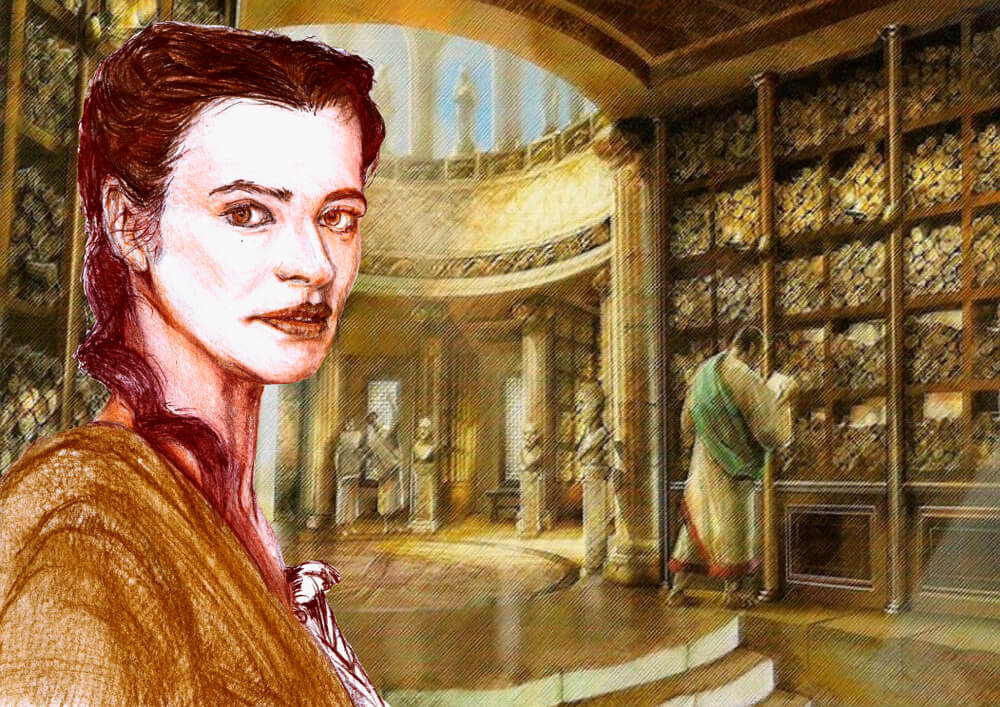Hipatia of Alexandria was the first philosopher, mathematician and physics whose reliable evidence exists. He was born in Egypt in the late 4th century . C.
Teacher and principal of the neoplatonic school of Alexandria in the early 5th century, she cultivated knowledge such as geometry and logic, leading an ascetic life, as established by neoplatonic precepts.
- She was a teacher and educator at a select school of aristocrats.
- Christians and pagans.
- And ended up in senior positions in Alexandrian society.
- Thus becoming a figure of great social influence.
- The target of the envy of many.
Among his scientific achievements is the improvement of these primitive astrolabes that were used to determine the situation of the stars in the celestial vault.
In addition, he invented a hydrometer, an instrument used to determine the relative density of liquids without the need for complex mathematical calculations.
Alexandria was the nuclear siege of a bloody civil war between Christians and pagans. The highest representative of Christianity, Patriarch Theophile, wanted to put an end to all non-Christian religious worship (paganism in any form).
On the other hand, the intellectual elite supported pagan temple defenders; all the philosophers who defended paganism left Alexandria to save their lives.
However, Hipetia, who considered philosophy, science and mathematics to be far removed from political-religious disputes, continued to teach as if all this internal war were not with her.
Indeed, up to that point, no one had bothered her, perhaps because of her neutral stance on it.
However, when Cyril, much more ruthless, succeeded Patriarch Tefiló, the level of persecution against all that was not Christian increased, this time Hipecia could not stay out of the disputes and sided with Orestes, an imperial delegate whose function was firmness and state. Order.
Hipetia felt represented by all the traditional, with Greek Aristotelian courtesy, in which religion is only a part of politics and not the other way around. His idea was that religious authority should be subordinated to the politics and well-being of citizens, not in the other way.
So far Hipatia? Give courses to the Alexandrian elite in what?Pagan? And meeting Christians was living proof that Christianity was compatible with other philosophical and religious ideas. There are sources that talk about people from all sectors and classes who admired him.
Finally, almost all of them, as there was an irreducible sect of Christian fanatics who did not want it in their city, their influence reaches the lowest strata, but much more moderately than religion.
Christians knew Hipatia as “the heathen. ” It was not difficult to spread rumors about the witch’s status as a scientist.
For the illiterate, mathematical signs looked like invocations of the devil, and astronomy was easy to confuse with astrology. Suddenly, Hipatia of Alexandria became a witch of the evil arts.
One day, in March 415, during Lent, Hipátia returned home in his car. Suddenly a mob attacked her and pulled her out of the car to Caesarion’s church.
There she was skinned alive with pieces of pottery that, in full fervor, were ripped from the walls and then burned her remains in the fire.
This murder was clearly religious, political and philosophical: philosophical because Hipatia defended dialogue and reason against fanatical faith; because he believed that religion should be subject to politics.
The Hipatia of Alexandria was perhaps the most painful depiction of the cultural battle between paganism and Christianity.

